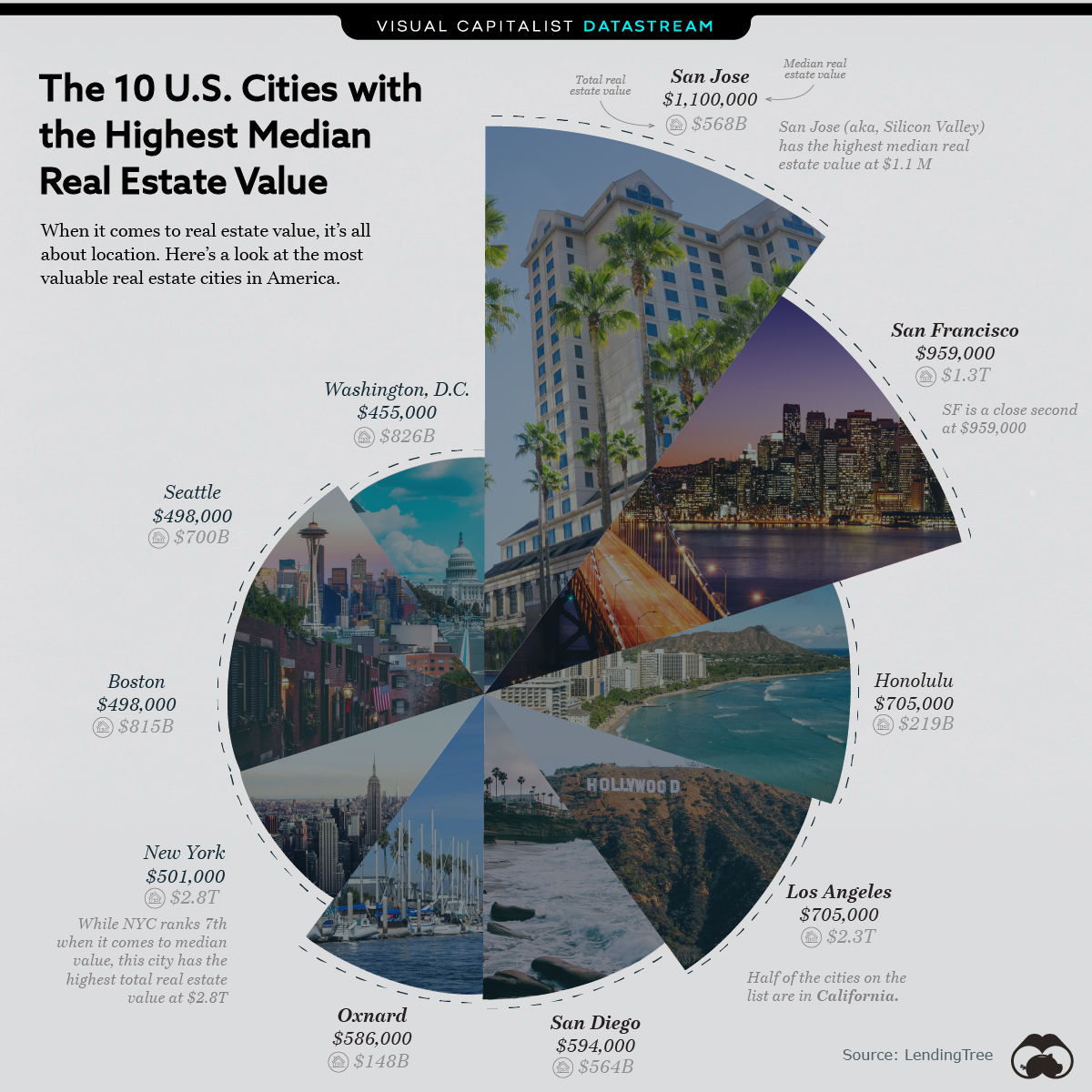Ranked: The Top 10 Most Valuable Real Estate Cities In America
(Click on image to enlarge)

- The highest-ranking city is San Jose, with a median real estate value of $1.1 M
- This makes sense, considering the San Jose’s median household income—in 2019, it was over $120,000
- That’s almost double the country-wide median of $68,703
The Top 10 Most Valuable Real Estate Cities in America
What’s the typical price of a home in America? The answer isn’t as straightforward as it may seem. Real estate value in the U.S. varies greatly from city to city, and the majority of value is concentrated in just a handful of key urban centers.
Here’s a look at the top 10 most valuable real estate cities, by median value:
| Rank | City | State | Median Value (USD) |
|---|---|---|---|
| 1 | San Jose | California | $1,100,000 |
| 2 | San Francisco | California | $959,000 |
| 3 | Honolulu | Hawaii | $705,000 |
| 4 | Los Angeles | California | $668,000 |
| 5 | San Diego | California | $594,000 |
| 6 | Oxnard | California | $586,000 |
| 7 | New York City | New York | $501,000 |
| 8 | Boston | Massachusetts | $498,000 |
| 9 | Seattle | Washington | $498,000 |
| 10 | Washington | D.C. | $455,000 |
San Jose comes in first at $1.1 million, while its city neighbor, San Francisco, places second at $959,000 per home.
It’s not a huge surprise that cities in the Bay Area take the two top spots on the list—the tech-mecca is well known for its red-hot real estate, largely driven by limited housing supply and the area’s high cost of living.
Shifting to the Suburbs
With remote work becoming the new norm, city dwellers are flocking to the suburbs for more space and better bang for their buck.
Because of this, suburban areas have seen a significant increase in value—in September 2020, the average sale price in Martha’s Vineyard rose by 47% compared to last year. In contrast, home sales in places like Brooklyn and San Francisco have plummeted.
Is this suburban shift a short-lived trend, or will this list look a lot different in a few years?
Source: LendingTree.
Note: Figures come from LendingTree’s database, which is a collection of real estate data from more than 155 million U.S. properties. Data is from January 2020.
Disclosure: None.



